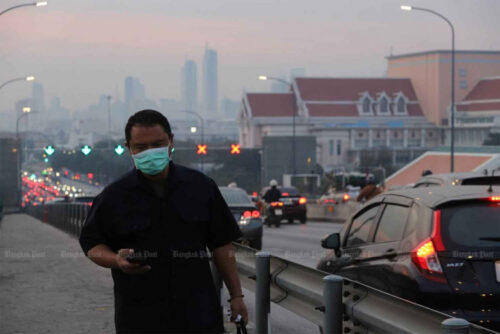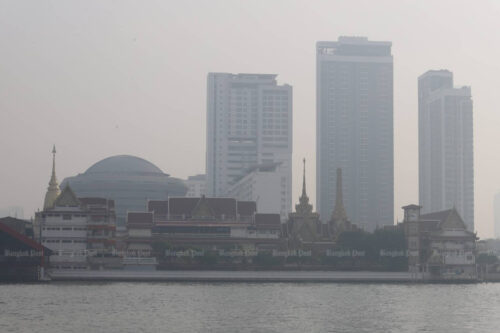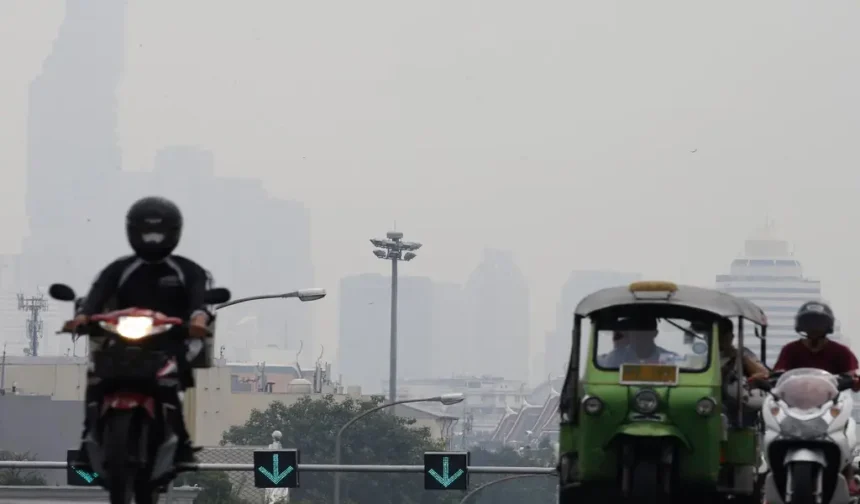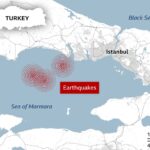PM2.5 pollution continues to cover the Thai capital for the fourth consecutive day, especially affecting Nong Khaem, Bang Khun Thian, and Phasi Charoen.
The Air Quality Information Centre of the Bangkok Metropolitan Administration (BMA) reported that the air quality in all areas of the Bangkok metropolitan area fell below the safety standard on Thursday morning.
On Thursday, the centre reported that the city’s average PM2.5 levels were 71 micrograms per cubic meter (mcg), significantly higher than the country’s standard of 37.5 mcg for a three-hour average (5 a.m. to 7 a.m.) for the fourth day in a row.
PM2.5 consists of dust particles measuring 2.5 micrometres or less in diameter, which are linked to chronic conditions like heart disease and respiratory problems when exposure is prolonged.
Traffic emissions, factories, forest fires, and the burning of harvest residues are among the primary sources of PM2.5.

The five districts with the highest PM2.5 levels are Nong Khaem (96.6 mcg), Bang Khun Thian (85.9 mcg), Phasi Charoen (83.4 mcg), Thawi Watthana (83.3 mcg), and Nong Chok (81.4 mcg).
The Impact of PM2.5 Pollution on Public Health in Bangkok: A Growing Issue
The centre advised Bangkok residents to wear facemasks, limit outdoor activities, and work from home whenever feasible.
The centre advises that anyone with persistent cough, eye irritation, or trouble breathing should see a doctor.
The AirBKK app, www.airbkk.com, Line Alert, and the BMA’s Environment Department Facebook page provide daily air quality monitoring.
Rocket Media Lab released its findings on the average air quality of Bangkok in 2024 on Thursday. The study revealed that the Thai capital experienced only 43 “good air quality days” last year, during which the air pollution score was below 50 on the World Air Quality Index.

In the previous year, Bangkokians experienced 252 days of “moderate air quality” (score of 51-100), 61 days of air that “affected the health of vulnerable groups” (score of 101-150), and eight days of air quality that “affected the public’s health” (score of 151-200).
According to Rocket Media Lab, the level of air pollution in Bangkok last year was equivalent to consuming 1,297.14 cigarettes.

Salman Ahmad is known for his significant contributions to esteemed publications like the Times of India and the Express Tribune. Salman has carved a niche as a freelance journalist, combining thorough research with engaging reporting.














